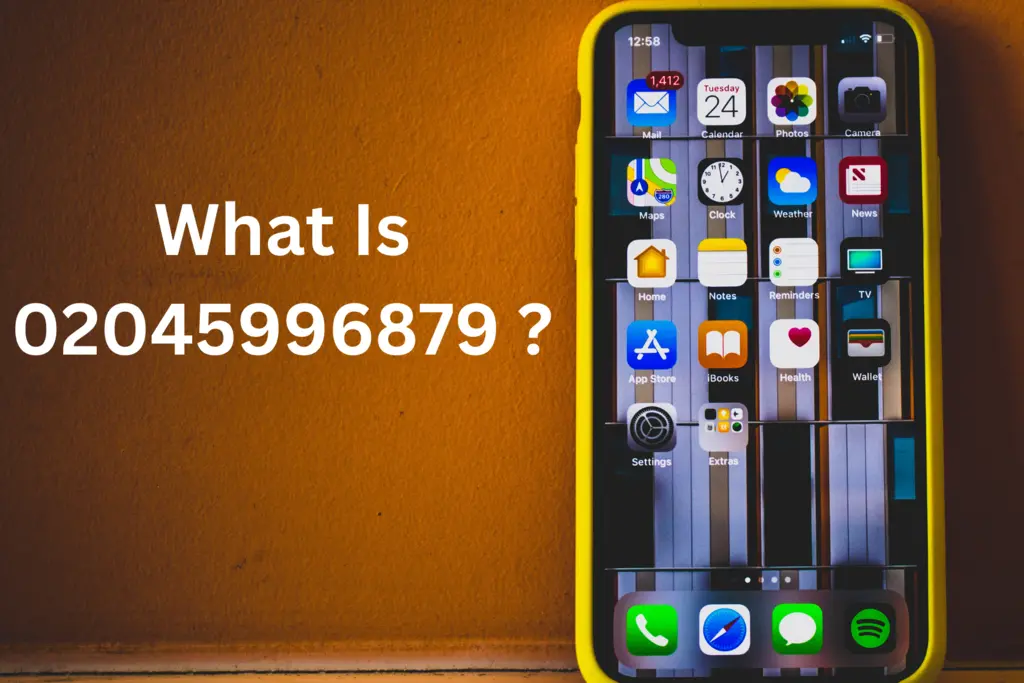Have you ever received a call or a message from an unfamiliar number and wondered about its significance? In recent times, the number “02045996879” has sparked curiosity and concern among many individuals, leading to questions about its potential association with bank scams.
But what exactly does this number signify, and should you be wary of it? Let’s delve into the intricacies surrounding this mysterious sequence of digits.
Understanding the Number
Breaking down the number “02045996879,” it appears to be a random sequence of digits devoid of any obvious meaning. However, its structure and recurrence in scam-related activities have led to speculations about its significance.
Originating from unknown sources, this number has become synonymous with dubious intentions, prompting individuals to exercise caution when encountering it.
Reports of Scam Activities
Numerous reports have surfaced regarding individuals receiving calls or messages from the number “02045996879,” often accompanied by attempts to extract sensitive information or perpetrate fraudulent schemes.
While the exact nature of these encounters may vary, they commonly involve impersonation of legitimate institutions, such as banks or government agencies, in an effort to deceive unsuspecting victims.
Instances of individuals falling prey to such scams serve as a stark reminder of the importance of vigilance in today’s digital age. Whether through phishing attempts, identity theft, or financial fraud, scammers employ various tactics to exploit vulnerabilities and manipulate individuals into divulging confidential information.
Potential Risks and Red Flags
When encountering the number “02045996879” or any unfamiliar contact, it’s essential to be mindful of potential red flags indicating a scam.
Unsolicited requests for personal or financial information, pressure tactics urging immediate action, and promises of unrealistic rewards are common indicators of fraudulent activity. Additionally, misspellings or grammatical errors in messages, as well as untraceable or spoofed numbers, should raise suspicion and prompt further scrutiny.
How Scammers Operate
Scammers utilize a myriad of techniques to deceive individuals, often exploiting fear, urgency, or greed to elicit desired responses. Whether through convincing scripts delivered over the phone or sophisticated phishing emails designed to mimic official communications, these perpetrators are adept at manipulating emotions and exploiting trust.
By impersonating trusted entities and leveraging psychological tactics, they seek to exploit vulnerabilities and coerce individuals into divulging sensitive information.
Protecting Yourself from Scams
In light of the prevalent threat posed by scams, it’s crucial to adopt proactive measures to safeguard oneself against potential exploitation. Verifying the legitimacy of incoming communications, avoiding sharing personal information with unfamiliar sources, and regularly monitoring financial accounts for suspicious activity are effective strategies for mitigating risk.
Furthermore, installing security software, maintaining awareness of common scam tactics, and educating oneself about prevalent scams can empower individuals to make informed decisions and protect their assets.
Reporting Scams
In the event of encountering suspicious activity or falling victim to a scam, it’s imperative to report such incidents to relevant authorities.
By documenting details of the encounter, preserving evidence, and contacting law enforcement or consumer protection agencies, individuals can contribute to efforts aimed at identifying and apprehending perpetrators. Additionally, sharing experiences with trusted networks and raising awareness about prevalent scams can help prevent others from falling victim to similar schemes.
Legal Actions and Investigations
Authorities are actively engaged in combating scam activities and holding perpetrators accountable for their actions.
Through collaborative efforts involving law enforcement agencies, regulatory bodies, and international organizations, concerted actions are taken to dismantle criminal networks and prosecute individuals involved in fraudulent schemes. Legal consequences, including fines, imprisonment, and asset forfeiture, serve as deterrents to would-be scammers and reinforce the consequences of engaging in illegal activities.
Public Awareness and Education
Public awareness and education play a pivotal role in mitigating the impact of scams and empowering individuals to protect themselves against fraudulent schemes. By disseminating information about common scam tactics, providing resources for scam prevention, and conducting outreach campaigns, organizations and authorities can equip the public with the knowledge and tools necessary to recognize and respond to potential threats effectively.
Conclusion
In conclusion, while the number “02045996879” may seem innocuous at first glance, its association with scam activities underscores the importance of exercising caution in today’s interconnected world.
By remaining vigilant, informed, and proactive, individuals can minimize the risk of falling victim to fraudulent schemes and contribute to efforts aimed at combating cybercrime. Together, we can create a safer digital environment for all.
FAQs
- Is it safe to answer calls from unfamiliar numbers like “02045996879”?
- It’s advisable to exercise caution when receiving calls from unknown sources, especially if they exhibit signs of suspicious activity or request sensitive information.
- What should I do if I suspect a call or message from “02045996879” is a scam?
- If you suspect fraudulent activity, refrain from engaging with the caller or responding to the message. Instead, report the incident to relevant authorities and take steps to safeguard your personal information.
- Can scammers use the number “02045996879” for other fraudulent activities?
- While the specific number may vary, scammers can employ similar tactics using different contact information. It’s essential to remain vigilant and recognize common red flags associated with scam activities.
- How can I protect myself from falling victim to scams?
- By staying informed about prevalent scam tactics, exercising caution when sharing personal information, and verifying the legitimacy of incoming communications, you can reduce the risk of becoming a victim of fraud.
-
Are there resources available for reporting and learning about scams?
- Yes, various organizations and authorities provide resources for reporting scams and educating the public about scam prevention.



